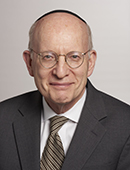2009
Best Doctors
New York Magazine
2008
President Elect
American Thyroid Association
2008
Invited lecture
International Autoimmunity Conference, Porto, Portugal
2007
Honorary President for Life
United States Friends of Newcastle University
2006
Veterans Affairs Merit Award
2006
Invited Lecture
International Autoimmunity Congress, Sorrento, Italy
2006
Plenary Lecture
Canadian Society for Endocrinology, Toronto
2005
Plenary Lecture
German Endocrine Society, Muenster
2004
Plenary Lecture
4th International Congress on Autoimmunity, Budapest, Hungary
2003
Plenary Lecture
Australian Endocrine Society, Melbourne
2002
Higgins Award
Thyroid Foundation of America

